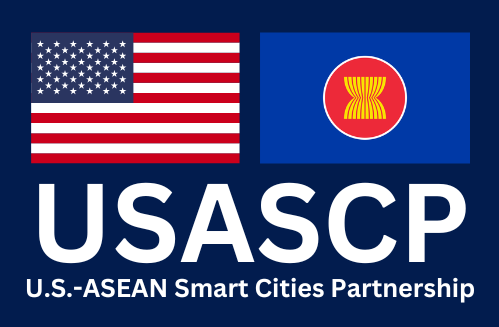FOLLOW US ON X
TO STAY UP TO DATE
WITH WHAT’S GOING ON!
NIST Associate Director Delivers Keynote Remarks at CSIS
NIST Associate Director Dr. Sokwoo Rhee delivered the keynote remarks at the CSIS event Cities of Tomorrow: Safety, Smarts, and Surveillance. CSIS convened a panel of experts to distinguish between leading smart city models and discuss how their technologies, including in the areas of public safety and surveillance, are impacting the power of citizens, governments, and corporations,…
USASCP Speaks at Japan-Hosted Event on Smart Cities
Deputy Assistant Secretary of State Marc Knapper and NIST Senior Executive Dr. Chris Greer delivered keynote speeches to an audience of over 180 at Japan's Ministry of Internal Affairs and Communications (MIC) event "Smart City Partnership: Japan-U.S." The discussion panels included participation from USASCP Program Manager Norm Capistrano and USTDA Senior Advisor Jeff Phillips on the government panel while Dr. Elisabeth Smela, University of…
JICA Seeks to Turn Phnom Penh and Towns into Smart Cities
Japanese International Cooperation Agency (JICA) representatives have sought support from Siem Reap's Apsara National Authority (ANA) to transform the ancient capital into a smart city. The call was made in February last year after the government approved three cities to join the ASEAN Smart Cities Network (ASCN) with assistance from the Japanese government. The three…
First Two U.S.-ASEAN WiSE “Twinnings” Announced
The Water Smart Engagements (WiSE) program will be composed of four exchanges for each of the three city pairs, two from each ASEAN city and two from each U.S. city. The first two U.S.-ASEAN WiSE city pairs will be Ho Chi Minh City and San Francisco, and Phuket and Milwaukee. Read More About WiSE
Australia, the U.S. and the Race for ASEAN’s Infrastructure
Both providing infrastructure investments, sometimes in direct competition Although not clearly visible, competition between the United States and Australia in infrastructure cooperation in ASEAN exists. This can be seen from one form of infrastructure cooperation that focuses on the same goal: the development of ASEAN smart cities. As outlined above, the United States and ASEAN…
What Lies Ahead of Indonesia’s 100 Smart Cities Movement?
The rapid transition of Indonesia from a rural to an urban economy has served as one of the benchmarks for the tremendous growth potential of the country, while at the same time emphasizing the many challenges it needs to face. Read Full Article From The Jakarta Post
NSF Issues DCL to Support USASCP-Aligned Research
Through this Dear Colleague Letter (DCL), the National Science Foundation's (NSF) Directorate for Computer and Information Science and Engineering (CISE) together with the Department of State's Bureau of East Asia and Pacific Affairs wishes to notify the U.S. community of its intention to support the following high-impact research-transition funding requests aligned with the U.S.-ASEAN Smart…
ASCN: Thinking Beyond Ceremonial Paradiplomacy
Can ASEAN support the growth of "smart" cities? On November 3, ASEAN conducted its 35th summit in Bangkok, Thailand. One notable point was the acknowledgment of the ASEAN Smart City Network Action Plan. The action plan is the next step of the ASEAN Smart City Network (ASCN), where the ASEAN member states have previously agreed on the 32nd…
Can China Outsmart U.S. in Race to Build Smart Cities in SE Asia?
Both committed to regional partnerships but U.S. is struggling to make its mark A year ago, U.S. Vice-President Mike Pence announced that the United States would support a Southeast Asian plan to transform the region's rapidly growing cities into hi-tech hubs. The move would "spur renewed American investment in the region's digital infrastructure", Pence said at the…
KOICA Commits to Coordination with ASCN and USASCP
The 4th Republic of Korea (ROK)-United States Senior Economic Dialogue (SED) was held in Seoul on November 6, with Vice Foreign Minister Lee Taeho and Under Secretary of State Keith Krach leading their respective delegations. Both sides intend to continue their close coordination through the SED to further strengthen bilateral economic ties and enhance their partnership on regional and…
Watching Huawei’s “Safe Cities”
Huawei’s "Safe City" products have fueled concerns that China is "exporting authoritarianism." Among the "solutions" Huawei sells globally under this label are facial and license-plate recognition, social media monitoring, and other surveillance capabilities. To better understand these developments, the CSIS Reconnecting Asia Project examined open-sources and identified 73 "Safe City" agreements for surveillance products or services across…
 U.S.-ASEAN Smart Cities Partnership
U.S.-ASEAN Smart Cities Partnership

